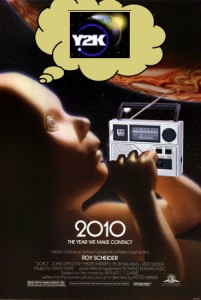 As the decade draws to a close, economic woes are a resounding theme in the radio world, especially in the non-profit realm of college radio. Universities are as strapped for cash as anyone else and are on the lookout for ways to cut costs. Increasingly these budget-cutting eyes are fixated on college radio, which has led to the unfortunate trend of universities reducing funding or eliminating stations entirely.
As the decade draws to a close, economic woes are a resounding theme in the radio world, especially in the non-profit realm of college radio. Universities are as strapped for cash as anyone else and are on the lookout for ways to cut costs. Increasingly these budget-cutting eyes are fixated on college radio, which has led to the unfortunate trend of universities reducing funding or eliminating stations entirely.
Schools have argued that college radio is unimportant since few students are involved and few listen. And this argument is aided by the fact that radio listenership is generally on the decline. Adding to the equation are the willing suitors (with cash in hand) waiting in the wings, including public radio (see trend #12) and religious broadcasters who are both eager to spread their reach across the radio dial.
Examples have included the sale of classical music station WCAL (along with KMSE) at St. Olaf College to Minnesota Public Radio in 2004. Eventually, that station was tranformed into The Current (ironically, a more college-radio like station with its indie-oriented music programming).
One of the most disturbing stories was the unexpected shutdown of Texas Tech station KTXT in December 2008. The nearly 50-year-old college radio station was described by university officials as a financial drain and not as relevant as other forms of media. Control of the station was transferred to Texas Tech’s other station, NPR-affiliate KOHM, and beginning in June the new KTXT started to air programming from Public Radio International and jazz music run on automation.
This May, Augustana College in Sioux Falls, South Dakota reported that its college radio station KAUR would be dropping its FM broadcast and would transform into an online-only station. By September 2009 control of the station (but not ownership) was passed on to Minnesota Public Radio. KAUR now airs an all news and talk format of syndicated public radio programs and the college abandoned plans to even host an online-only student radio station.
In an interesting departure from the usual story, when Southern Vermont Community College sold off their station WBTN in 2008 the buyer was a community group dedicated to preserving both local programming and student DJs.
Hopefully there will be a happy outcome for Canadian student radio station CKMS, which has been struggling with budget woes over the past few years. After losing school funding and being evicted from their studios, they had planned to cease operations. However, like a Phoenix they are rising again and plan to move their operations to a new building in January 2010.
That’s what I love about college radio, despite fluctuating levels of university support and huge variations in student commitment, the spirit of those passionate about independent radio can be a force to be reckoned with. And, indeed, college radio is still important and relevant and is often one of the only sources for local programming. I hope that universities wise up and embrace their student radio stations as resources that are worth preserving.


